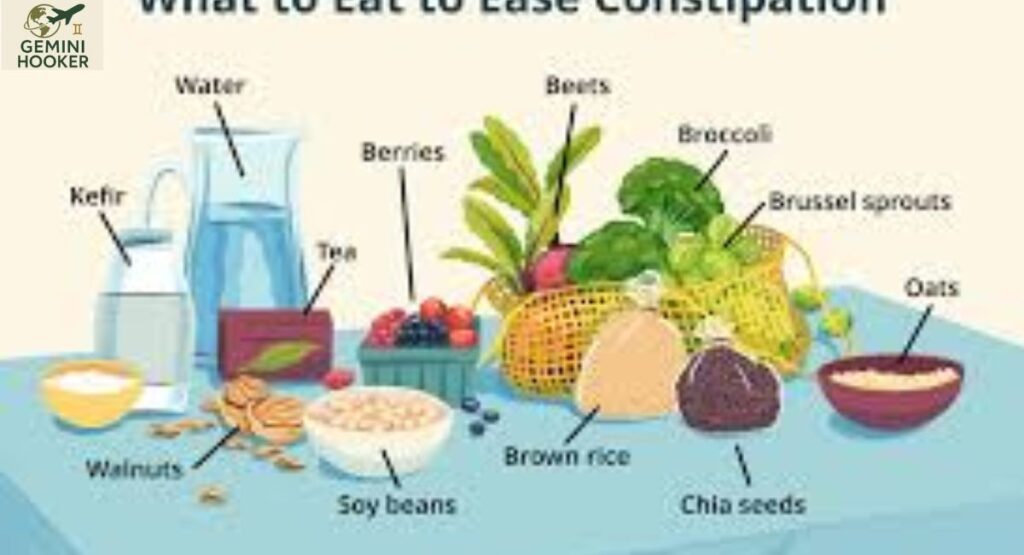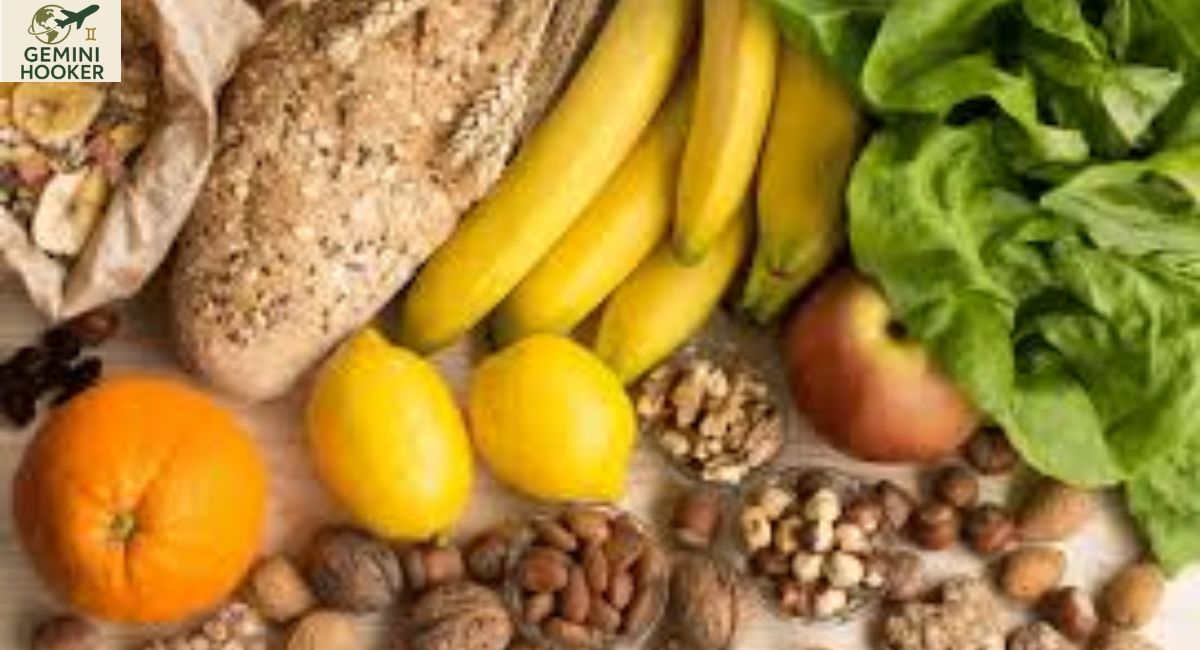Digestive problems, such as constipation, are among the most common ailments in the world. It is assumed that over 15-20 percent of the population experiences constipation at least once in their life, and this problem is more common in women, the elderly, and people with a sedentary lifestyle.
Although constipation does not always represent a life-threatening condition, it can be rather uncomfortable, cause bloating, and affect the quality of daily life.
In layman’s terms, constipation involves difficulty in the passage of stools or when the bowel movements are infrequent (less than three times a week). Stools tend to be dry, hard to pass, and hard. This may cause abdominal pains, straining, and incomplete evacuation.
Though there are medical treatments and commercial laxatives, home remedies for constipation are popular because they are natural, effective, and safe. A slight modification in eating, lifestyle, and hydration can work wonderfully to get your bowel functions to be regular.
This article will take you through home remedies for constipation, its causes, as well as the risks involved, and the practical advice backed by science. By the way, you will get the full information regarding the treatment of constipation, which is done by using the help of natural methods to avoid medication wisely.

What is Constipation?
Constipation does not only relate to how many bowel movements one has per week. It also pertains to consistency and the ease of passing stools. The Rome IV diagnostic criteria (current medical definition of digestive conditions) could define constipation in case of having two or more of the following indications, over a period of three months:
Fewer than three bowel movements per week
Straining at greater than a quarter of bm.
Also, troublesome bowel movements (straining or constipation, hard or lumpy stools, Bristol stool scale type 1 or 2)
An experience of incomplete evacuation
Difficulty in having a bowel movement without assistance (i.e., pushing against the abdomen or with fingers)
Constipation can be acute (of short duration, caused typically by diet or dehydration) or chronic (long-term, related to lifestyle or illness, or treatment).
Some of the typical causes of constipation are:
When seeking home remedies, it is necessary to find out the causes first. Constipation normally occurs because of the slow movement of the stool into the colon. The most common of the factors are;
1. Low Fiber Diet
Among the most important causes are whole grains, fruits, vegetables, and legume-depleted diets. Fiber aids in the increase of the bulk in the stool and keeps it soft. A person gets constipated as a result of there being a shortage of fiber.
2. Dehydration
There is an important role of water in digestion. When you consume insufficient fluids, the colon extracts additional fluid from the stools, resulting in hard, dry bowel movements.
3. Sedentary Lifestyle
Any physical activity encourages intestinal action. A lack of exercise may slow the bowel movement, hence causing constipation.
4. Help Prevent the Feeling to Poop
Most individuals experience inhibitions linked to busy lifestyles, and this may interfere with the natural bowel movement process.
5. Medications
There are some medications, e.g., analgesics (opioids), iron, antidepressants, and blood pressure pills, which may cause constipation as a secondary effect.
6. Hormonal Changes
Slow digestion can be caused by pregnancy, menopause, and thyroid imbalances that cause constipation.
7. Medical Conditions
Causes of constipation can also include disorders such as Irritable Bowel Syndrome (IBS), diabetes, Parkinson’s disease, and intestinal obstruction.
Symptoms of constipation
The reasons for constipation extend beyond the inability to have a bowel movement. Typical symptoms are:
Less than 3 bowel movements each week
Hard, lumpy, and pellet-like stools
Pain or Strain during defecation
Abdominal pains and bloating
Gas and individual flatulence
A sense of an incomplete evacuation of the bowel
There are some instances where a few drops of bright red blood occur during straining.
Chronic constipation or constipation that includes the warning symptoms of severe pain, unexplained weight loss, blood in stools, or new changes in bowel habits will need medical attention.
Homemade Remedies for Constipation
Constipation has numerous natural remedies that can be used to eliminate this condition easily at home. Remedies have to be aimed at hydration, high-fiber diets, healthy fat intake, and stimulants that will facilitate the bowel, wedding, and they all must be natural. And what are they, so we can examine them in more detail?
1. Consume A Lot of Water
Drinking enough water is also one of the best and easiest methods of treating constipation. Hard stools are a result of a major cause, dehydration. When the body becomes dehydrated, more water is taken out of the stool by the colon, thus making the stool dry and hard.
Take in at least 8 or 10 glasses of water on a daily basis.
Start each morning with a glass of warm water, which helps to activate digestion.
A couple of drops of lemon juice can also make the bowel movement easier since citric acid stimulates a mild form of laxative in the digestive system.
2. Fiber-Rich Foods
Dietary fiber is necessary for increasing the bulk of the stool and bowel regularity. There are two basic types of fiber:
Soluble Fiber– swells up and forms a gel-like consistency (existing in oats, chia seeds, flaxseeds).
Insoluble Fiber -provides bulk and aids in the movement of stool through the GI tract (found in whole grains, vegetables, nuts).
The most fiber-rich foods when it comes to relieving constipation are:
Fruits: apple, pear, papaya, kiwi, figs, prunes
Vegetables: spinach, broccoli, carrots, and cabbage
Pulses: lentils, beans, chickpeas
Brown rice, oats, barley
The recommended amount of fiber that adults should consume each day is 25 to 35 grams.
3. Prunes and the Juice of Prunes
Prunes are regarded to be one of the great natural laxatives. They contain:
Sorbitol: It is a mild laxative, which is a natural sugar alcohol
Insoluble fiber, which bulks the stool
Research indicates that prunes or a small glass of prune juice will go a long way in improving bowel movements when eaten or drunk, respectively, 4-5 times a day.
4. Hia Seed and Flaxseeds
The fiber and omega-3 fatty acids in both chia seeds and flaxseeds are high. Chia seeds absorb water and increase bulk to soften constipation.
How to use: Soak chia seeds with 1 tablespoon of seeds, available in water overnight. Take in the morning.
Flaxseeds may be mixed into smoothies, yogurt, or oatmeal.
5. Castor Oil and Olive Oil
Oils have the capacity to make the digestive tract slippery and easier to evacuate stools.
Olive Oil: A dose of 1 tablespoon when on an empty stomach will encourage bowel movement.
Castor Oil: Castor oil has been used as an at-home remedy and should be viewed as a powerful laxative. It ought to be exercised in moderation and not consistently to avoid any addiction.
6. Ginger Tea
Ginger- this is a digestive stimulant. Drinking ginger tea may help to relieve bloating by stimulating intestinal activity.
Usage instructions: bring slices of fresh ginger in their water to a boil and hold there for 510 minutes. Take it once or twice a day.
To boost the effect, adding ad revenue with honey or lemon is a good idea.
7. Coffee (in comparative moderation)
Lots of people observe that black coffee in the morning moves the bowels. Caffeine stimulates the action of intestinal muscles.
Take it first thing in the morning on an empty stomach.
Use caffeine sparingly, as too much of it will dehydrate your entire system and aggravate constipation.
8. Isabgol
Psyllium husk is a fiber supplement derived from the husk of Plantago ovata seeds. It has a bulk-forming laxative effect:
Take 1 -2 teaspoons of it in a glass of warm water or milk at bedtime.
It takes up water in the bowels and softens faeces.
This is among the commonly prescribed medications by physicians.
9. Aloe Vera Juice
Aloe vera has gained its fame due to its radical healing and anti-inflammatory effects. Sipping aloe vera juice produces bowel movements.
How to take it: 1-2 tablespoons of aloe juice/aloe vera combined with water.
Do not use in excess because this leads to diarrhea.
10. Routine Physical Exercise
Exercise is a very important aspect of ensuring that digestion occurs. Exercise also causes the intestinal muscles to contract and move stool more easily.
Walking: short jogs or walks that take up around 20 to 30 minutes a day are sufficient to cut down on constipation.
Yoga Poses: The suitable yoga poses that help relieve the condition include Pawanmuktasana (wind-relieving pose), Malasana (squat), and twists.
Back exercises: Exercise the abdominal muscles and help to strengthen bowel movement.
11. Abdominal Massage
A gentle massage of the abdomen can activate the intestines. Circular motions with the palm on the lower parts of the abdomen, lasting 5 -10 minutes, help to activate bowel movements.
This is also conveniently beneficial to children, the aged, and those with mild cases of constipation.
12. Probiotics
Probiotics are good microorganisms that enhance the health of the bowel. They promote the balancing of intestinal microbiomes and also bowel movements.
Examples of sources of probiotics include yogurt, kefir, kimchi, sauerkraut, and probiotic supplements.
Research indicates that probiotics such as Lactobacillus and Bifidobacterium treat constipation among adults and children.
13. Squat posture (Toilet Posture)
Passing stool while sitting in a squat is more natural and causes less strain. A small stool under the feet when sitting on the toilet can simulate this position.
This procedure straightens the rectum, and it eases elimination.
14. Refined Foods
Fast food, fried goods, chips, refined flour, etc., are high in unhealthy fats and contain low amounts of fiber, which slows down the digestion process.
Replacing them with fresh, whole, and fiber-rich food is also a natural way of reducing constipation.
Prevention of Constipation by Changes in Lifestyle
The most effective home remedies take place in the context of long-term lifestyle change. Little things in daily life may greatly contribute to digestion and prevent constipation.
1. Create a routine
Your digestive system becomes accustomed to routine. Try to:
Take meals regularly.
Go to the bathroom at a fixed time every day (preferably in the morning, after eating)
Do not postpone the necessity to poop
2. Drink Water All Day
Drinking water in the morning is not the only thing required, since hydration should be on throughout the day.
Bring a water bottle.
Drink water at 46 before meals.
hydrating foods (watermelon, cucumber, oranges)
3. Exercise Regularly
Mental and Physical activity excites the bowels
Walking: 20 30 minutes per day
Twists and squats: y
Strength training: Also makes the abdominals stronger
4. Manage Stress
The brain-gut connection influences gut health by impacting the gut via stress. Stress may result in digestive ailments such as constipation and IBS.
Use meditation or breathing exercises, or mindfulness.
Good digestion requires sufficient sleep (7-8 hours a day)
5. Do not abuse laxatives
The excessive use of stimulant laxatives may result in dependence when your bowel stops functioning on its own. Use extreme caution and seek a consulting physician in the case of speech.
6. Moderate Diet Plan
Take prebiotics (bananas, garlic, onions) to nourish good bacteria in the intestines.
Red meat and fried foods should be avoided to a large extent.
Add probiotics as fermented goods.
Conclusion
Digestive constipation is quite a common condition, yet as a rule, it can be taken under control at home. The most successful home cure against constipation comprises hydration, fiber, prunes, chia seeds, olive oil, ginger tea, probiotics, and exercise.
Moreover, healthy lifestyle changes to avoid the recurrence of constipation are available, which include a routine, stress reduction, and avoiding too much processed food.
Prevention is prevention–use daily fiber, water, and exercise.
Herbal medicines are natural and safe enough, yet the persistence or aggravation of symptoms presupposes consultation with healthcare professionals.
When such changes become a habit integrated into your everyday routine, they will help you achieve smoother digestion, regular bowel movements, and total gut health without excessive use of medications.
FAQs
1. What can I do to have an immediate home remedy for constipation?
Some of the quickest home remedies include rinsing with warm lemon water and rinsing with rinsing juice of rungs. Coffee is also known to act as a bowel stimulant to some individuals.
2. Does constipation go away at night?
Yes. Consuming a bit of prunes, drinking warm liquids, attempting abdominal massage, or a squat position may give overnight relief.
3. What is the daily dose of fiber?
Pictured as good sources of fiber are fruits, vegetables, whole grains, and legumes, and the recommendation is that an adult ought to consume 25-35 grams of fiber per day.
4. Is constipation normal in a pregnancy?
Yes, as a result of hormonal changes and intestinal pressure. Pregnant women may find it safe to use home remedies, such as fibrous foods, water, and light work-outs-though strong laxatives are a must-avoid.
5. Which foods should you avoid from constipation?
Recent forms of food, deep-fried chips, white bread, plain, exorbitant dairy, and crimson meat may exacerbate constipation.
6. How do I know when to see a physician?
Call a physician when the condition does not change after 2 weeks or you experience the following:
Extreme pain in ( Questionnaires
Blood in stool is
Weight loss that weight loss
Intestinal proposed variations

